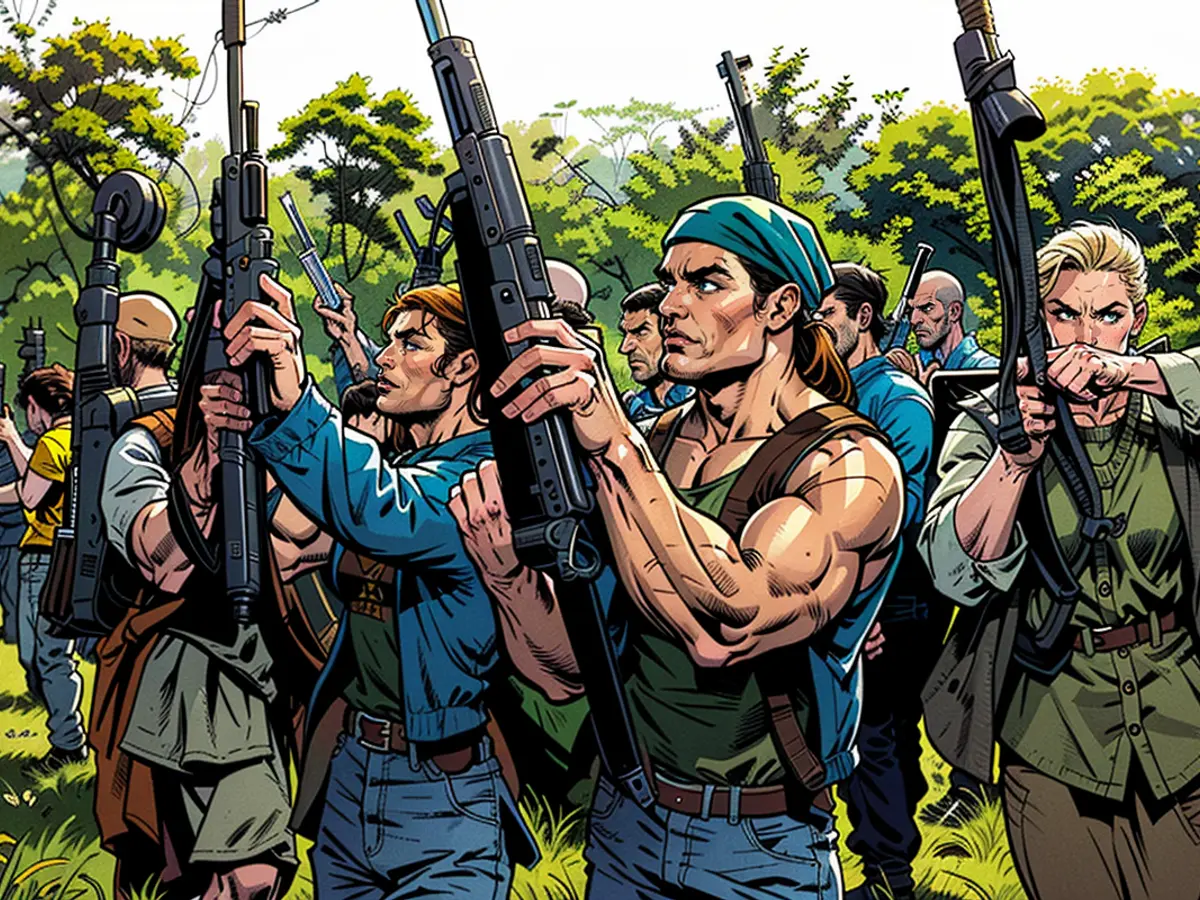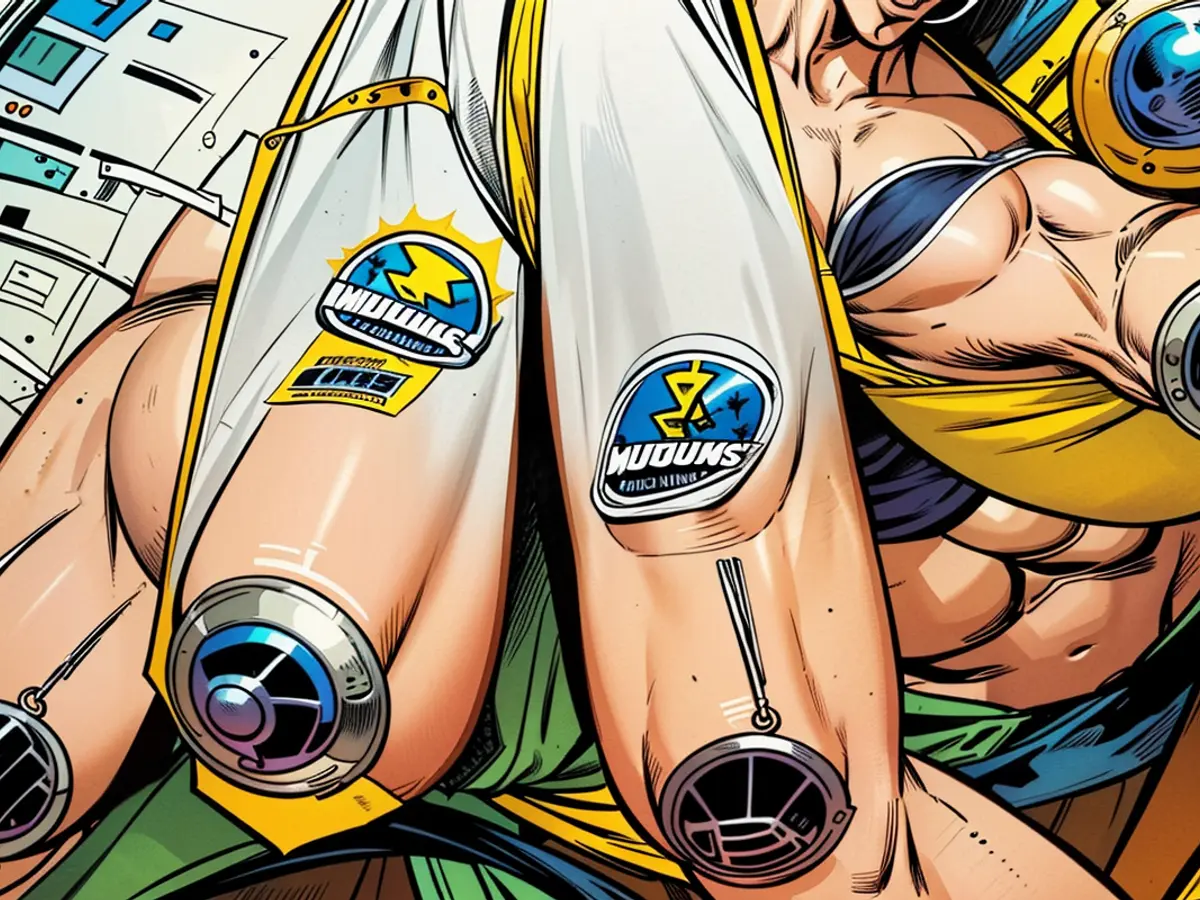The violent past of the $38 million Chiquita suit verdict unveiled
Just a few minutes after his bus was stopped at a checkpoint in the coastal area of Uraba, the man was brutally dragged away, beaten to death right in front of his fellow passengers, and then left by the side of the road where his killers covered his lifeless body with a banana plant. Cows later fed on his remains, as per court documents.
And the violence didn't stop there. His daughter and sister-in-law mysteriously vanished a few weeks later, never to be seen again. Death threats were also made against a member of the family.
What remained of the family quickly left Uraba for good.
He was just one of many people who faced the wrath of the United Self-Defense Forces of Colombia, or AUC, a notorious right-wing terrorist group that managed to amass a force of over 25,000 fighters at the height of the Colombian civil conflict around the turn of the century.
More than two and a half decades later, a landmark civil case in a US federal court this week found banana company Chiquita Brands International liable for funding the paramilitary group, and ordered Chiquita to pay $38.3 million in compensation to "David's," and families of seven other victims - whose real names were kept hidden in court documents.
The heartbreaking details of their deaths, which took place between 1997 and 2004, and the effects it had on the families, were narrated to the jurors prior to their deliberation over whether Chiquita - one of the world's largest banana producers - had acted "reasonably" by paying the AUC what they characterized as "extortion money."
The families argued that Chiquita's payments to the AUC contributed to the group's violent actions in Colombia, thus making the company directly responsible for the group's murders.
The verdict has been hailed as a groundbreaking milestone. According to the lawyers who won the case in Florida, this marks "the first time an American jury has held a major US corporation accountable for complicity in serious human rights abuses in another country."
"I'm filled with joy. We've waited for so long, and finally, we've won. I was almost giving up, but God helped us," one of the plaintiffs told CNN following the ruling.
A woman who lost her partner at the hands of the AUC paramilitaries on November 14, 2003, narrated to the court how they were pressured to sell a banana plantation at a lower-than-market rate.
"I don't need the money for myself; I'll soon be gone... but at least for the girls: may they get some justice now!" she said of the compensation.
A Trailblazing Case?
The verdict marked the end of a nearly 20-year legal battle that saw the families sue Chiquita International following a separate case in 2007. In this case, the company admitted to paying $1.7 million in "protection money" to the AUC - considered a Foreign Terrorist Organization by the State Department at the time - and settled with the US government for a $25 million fine.
However, this case is unlikely to be the last. Marco Simons, the general counsel for Earth Rights International, a human rights NGO that provided legal assistance to the victims, described their legal strategy as a "bellwether process," involving selecting the nine strongest cases out of the more than 4,500 complaints they had received. He now hopes that many more similar cases will emerge.
"It's been an honor to represent these victims for the past 17 years. While the case is not yet over, this is a significant step forward, and we hope it paves the way for compensation for all the victims," Simons said during a press conference in Washington on Tuesday.
Despite Chiquita's intent to appeal the verdict, Simons believes that it will send a powerful message to corporations about the need to safeguard human rights.
"Ultimately, this money won't replace what's been lost. We're still talking about horrific abuses the families suffered, but the money is essential because corporations understand only one language - money. Sometimes, it takes a significant monetary penalty to change corporate behavior."
'Tragic for so Many'
Since the beginning, Chiquita has argued that they were also victims, as they had been forced to pay the AUC for protection. While this defense strategy didn't sway the jury into believing Chiquita had acted "as a reasonable businessperson," the company still stands by its legal stance.

"The situation in Colombia was deeply tragic for so many, including those directly affected by the violence there. Our thoughts remain with them and their families. However, this doesn't change our belief that there's no legal basis for these claims," Chiquita stated in an official response to CNN after the latest verdict.
In its 2007 case against the US Justice Department, Chiquita admitted to making over "100 payments to the AUC totaling over $1.7 million." The company documented the AUC payments as "security services," although they never received any actual protection from those payments, as per a press release from the U.S. Justice Department around that time.
Eric Holder, who acted as Chiquita's attorney during their 2007 trial prior to his tenure as the US Attorney General under President Obama, shared with the judge that: "The corporation had to make payments to several terrorist organizations for over 15 years since these were the groups that controlled the regions in which the business operated, not the Colombian government."
During the trial, however, Chiquita eventually admitted to their culpability in a negotiated plea deal that they had intentionally continued remitting funds to the AUT even after the organization was designated as a terrorist group by the US government in 2001. This occurred despite a senior executive protesting to Chiquita's board directly expressing his disapproval of the company's operations in Colombia and requesting their termination due to the payment of protection money.
Authorities uncovered that Chiquita made a net revenue of $49.4 million from their Colombian operations between 1997 and 2004.
The Era of 'True Terror'
The AUT emerged in 1997 during one of the most distressing periods of the Colombian civil war, where the government had been battling left-wing guerrilla forces, right-wing paramilitaries, and criminal organizations.
During this period, leftist guerrillas from the Colombian Revolutionary Armed Forces (FARC) and the National Liberation Army (ELN) posed a considerable threat to the Colombian government and the civilian population. According to Chiquita's statements in their 2007 trial, they had previously paid ransoms to the FARC and ELN and eventually turned to the AUT in 1997.
In response to the possibility of a communist uprising in the country, landowners and right-wing sympathizers formed paramilitary groups, such as the AUT, to combat the guerrillas. The AUT wreaked havoc in northern Colombia from 1997 until their demobilization in 2006, instilling terror and fear to curb the rebelligion.
Peaking in the late 1990s, the AUT numbered tens of thousands of fighters and relied on drug trafficking for their resources: after their demobilization, over a dozen of their leaders were extradited to the US on drug-related charges.
A woman awarded compensation in the recent trial recounted the chilling situation during this era, stating, "I remember that time, it was true terror." Her husband was one of the victims, while her daughter was brutally violated. Victims multiply across the region.
In one of the case's testimonies, a minor witness recounted witnessing her mother and stepfather being ruthlessly murdered by the side of the road, with only the equivalent of less than a dollar returned to her to survive as an orphan.
Present-day Colombia
Today, Colombia is virtually unrecognizable from the nation that spawned the AUT 20 years ago.
In the years following the AUT's disbandment, a peace agreement in 2016 also brought the five-decade-long conflict between the government and the FARC to an end. Since then, both right-wing paramilitaries and left-wing guerrillas have been incorporated into transitional justice initiatives established to lay to rest some of the most troubling episodes of the conflict.
Despite the drastic improvements, fear and concern persist in Urabá, with some former members of the AUT currently at large, joining a new organized criminal group known as the Gulf Clan that challenges government control in the country's northwestern region.
Human rights organizations assert that major corporate interests frequently cooperate with local politicians and criminal entities to repress activism, especially in situations that defend the environment - a risky endeavor in South America.
Despite these ongoing issues, some of the many victims of the AUT find optimism in this week's court decision. One of the plaintiffs reached out to CNN to share her message: "My daughter, my son, they tell me not to answer the phone, not to talk. But fear can only sustain itself until someone decides to stand up against it."

Read also:
The violent past of the $38 million Chiquita suit verdict has implications not just for the Americas, but for the world, as corporate accountability for human rights abuses in other countries is now being established.
The verdict against Chiquita Brands International, one of the world's largest banana producers, for funding a paramilitary group in Colombia, has set a precedent that could inspire similar cases against corporations worldwide.







